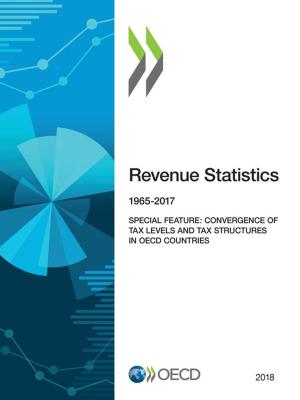| Author: | Collectif | ISBN: | 9789264269361 |
| Publisher: | OECD | Publication: | February 28, 2017 |
| Imprint: | OECD | Language: | English |
| Author: | Collectif |
| ISBN: | 9789264269361 |
| Publisher: | OECD |
| Publication: | February 28, 2017 |
| Imprint: | OECD |
| Language: | English |
India is the fastest-growing G20 economy, thanks to ambitious structural reforms and low commodity prices. Deregulation and improvement in the ease of doing business have boosted foreign investment. However, investment is still held back by the relatively high corporate income tax rates, slow land acquisition processes, stringent regulations, weak corporate balance sheets, high non-performing loans and infrastructure bottlenecks. Quality job creation has been low, due to complex labour laws. A comprehensive tax reform would promote inclusive growth: implementation of the Goods and Services Tax would support competitiveness, investment and economic growth as will reducing the corporate income tax rate and broadening the base. Property and personal income taxes could be reformed to raise more revenue, promote social justice and empower sub-national governments. Ensuring clarity and certainty in tax legislation and employing more skilled tax officers would strengthen the tax administration. Spatial disparities in living standards are large. India is reforming relations across levels of government to empower the states and make policies more responsive to local conditions. Some states have taken the lead in improving the ease of doing business and now enjoy higher productivity and income. In rural areas, poverty rates are high and access to core public services is often poor. Farm productivity is low owing to small and fragmented land holdings, poor input management, and inefficient market conditions. In urban areas, agglomeration benefits are quickly reduced by congestion costs, in particular air pollution and long commuting time.
SPECIAL FEATURES: TAX REFORM; REGIONAL DEVELOPMENT
India is the fastest-growing G20 economy, thanks to ambitious structural reforms and low commodity prices. Deregulation and improvement in the ease of doing business have boosted foreign investment. However, investment is still held back by the relatively high corporate income tax rates, slow land acquisition processes, stringent regulations, weak corporate balance sheets, high non-performing loans and infrastructure bottlenecks. Quality job creation has been low, due to complex labour laws. A comprehensive tax reform would promote inclusive growth: implementation of the Goods and Services Tax would support competitiveness, investment and economic growth as will reducing the corporate income tax rate and broadening the base. Property and personal income taxes could be reformed to raise more revenue, promote social justice and empower sub-national governments. Ensuring clarity and certainty in tax legislation and employing more skilled tax officers would strengthen the tax administration. Spatial disparities in living standards are large. India is reforming relations across levels of government to empower the states and make policies more responsive to local conditions. Some states have taken the lead in improving the ease of doing business and now enjoy higher productivity and income. In rural areas, poverty rates are high and access to core public services is often poor. Farm productivity is low owing to small and fragmented land holdings, poor input management, and inefficient market conditions. In urban areas, agglomeration benefits are quickly reduced by congestion costs, in particular air pollution and long commuting time.
SPECIAL FEATURES: TAX REFORM; REGIONAL DEVELOPMENT















